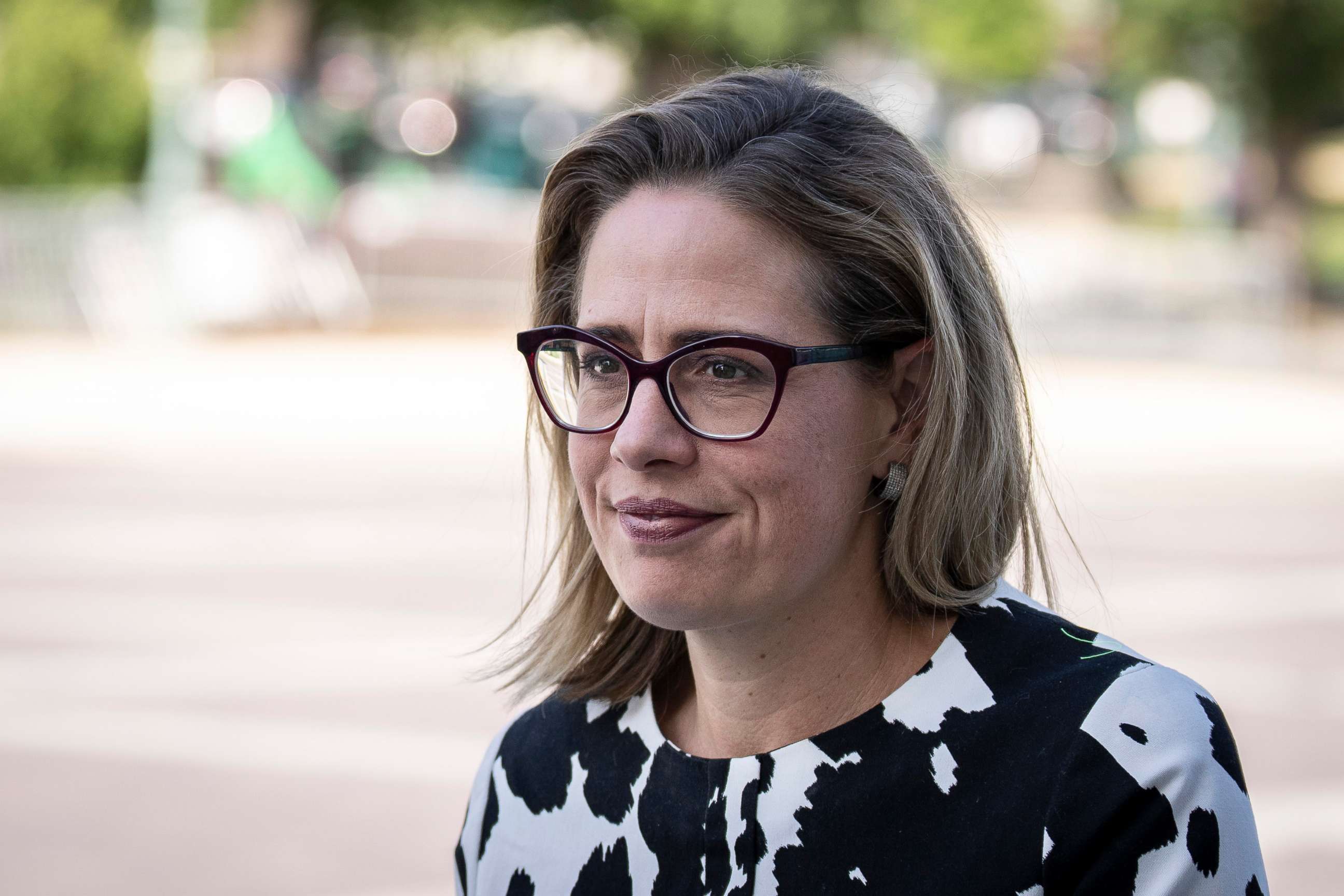Sinema signs on to Democrats' climate, tax bill
A vote is expected on Saturday to begin debate on the Inflation Reduction Act.
All eyes are on Arizona Sen. Kyrsten Sinema as Democrats look to begin debate on their major health care, tax and climate bill this weekend.
Senate Majority Leader Chuck Schumer, D-N.Y., announced Thursday that the chamber is expected to take its first vote on the Inflation Reduction Act on Saturday afternoon. The vote will be on a motion to proceed to the $740 billion bill, which, if passed, will kickstart up to 20 hours of debate.
Aiming to fast-track the legislation with a process known as reconciliation, under which bills can pass with a simple majority, Democrats need the support of every member of their caucus in the face of expected unanimous Republican opposition.
That's where Sinema comes in. The moderate Arizona Democrat has occasionally thwarted the party's agenda, along with West Virginia's Joe Manchin. Manchin is already on board and has claimed credit for the last-minute agreement on the spending bill.
On Thursday night, Sinema said she would "move forward" with the bill, once reviewed by the Senate Parliamentarian.
"We have agreed to remove the carried interest tax provision, protect advanced manufacturing, and boost our clean energy economy in the Senate's budget reconciliation legislation," the Arizona senator said in a statement. "Subject to the Parliamentarian's review, I'll move forward."
"Following this effort, I look forward to working with Senator [Mark] Warner to enact carried interest tax reforms, protecting investments in America's economy and encouraging continued growth while closing the most egregious loopholes that some abuse to avoid paying taxes."
Following her announcement, Schumer also issued a statement, saying, "I am pleased to report that we have reached an agreement on the Inflation Reduction Act that I believe will receive the support of the entire Senate Democratic conference. I have had many productive discussions with members of our conference over the past three days and we have addressed a number of important issues they have raised."
"The agreement preserves the major components of the Inflation Reduction Act, including reducing prescription drug costs, fighting climate change, closing tax loopholes exploited by big corporations and the wealthy, and reducing the deficit by $300 billion," he said. "The final version of the Reconciliation bill, to be introduced on Saturday, will reflect this work and put us one step closer to enacting this historic legislation into law."
Sinema had spoken very little about the bill publicly, avoiding repeated questions by reporters on where she stands.
ABC News has learned from two sources familiar with the matter that Sinema is seeking changes to the Inflation Reduction Act, specifically the removal of a provision that would close the so-called "carried interest" loophole that allows wealthy hedge fund managers and private equity executives to pay lower tax rates on investments.
Sinema is also seeking to add $5 billion in drought resiliency.
Sinema spent Thursday shuttling back and forth from her pale pink-walled office in the basement of the Capitol to the Senate chamber -- once meeting with Manchin -- and to Sen. Schumer's office. When asked if she had agreed to any bill changes, the enigmatic senator told ABC, "I can't tell you anything."

It's unclear what impact such changes would have on the outcome of the legislation.
Sinema is also still waiting for word from the Senate Parliamentarian -- the chamber's nonpartisan rule-keeper -- who is scrubbing the legislative text to see that each provision meets the strict test of reconciliation.
Manchin told reporters on Tuesday that he and Sinema have discussed the Inflation Reduction Act but didn't reveal where she may land, stating "she'll look at all of this and make her own decision."
A video of Sinema talking to Republican Sens. Tom Cotton and Mitch McConnell went viral this week, though the topic of their conversation is unknown.
McConnell, the Republican leader in the chamber, has sharply criticized the tax provisions in the bill. McConnell on Wednesday accused Democrats of wanting to pass "huge, job-killing tax hikes."
Democrats have countered that the tax provisions, including a 15% corporate minimum tax, won't increase taxes on Americans making less than $400,000 a year -- one of President Joe Biden's key campaign promises -- and will target corporations and professionals they say aren't paying their fair share.
Biden pushed for passage of the law himself on Thursday as he participated virtually in a roundtable with business and labor leaders.
"The Inflation reduction Act lowers prescription drug prices, lowers health insurance premiums, invests in clean energy that will create jobs and economic opportunities for business and labor, reduces the deficit and makes common sense reforms to our corporate tax code," Biden said.
Biden did speak directly to members of Congress in his remarks, urging them to pass the bill "for the American people."




